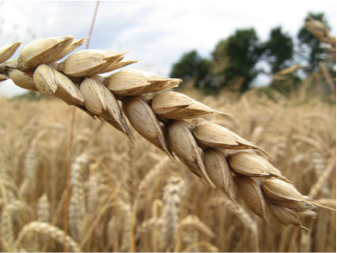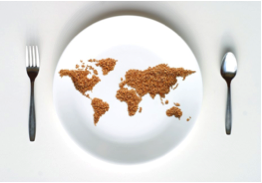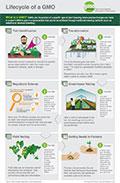March Madness: GMO Basics Replay and the Latest Biotech Innovations: What We’re Reading -March 2016
GMOs were the talk of the town in the madness of March! Working our way through the madness, we got a replay of GMO basics and right at the buzzer we learned about the latest biotech innovations and techniques. Check out some of the articles that caught our attention and deserve a replay.
Did you catch the replay on GMOs?
Jacob Bunge at The Wall Street Journal outlines the “5 Things to Know about GMO Crops.”
According to Jacob Bunge, the first question to ask and the first thing to know about GMOs is: “What are GMO crops?” He provides the following definition:
They are plants or animals that have had their genes altered to provide some benefits. Using genes from bacteria, viruses and other plants, crops like corn and soybeans can be given the ability to survive weed-killing sprays, produce proteins that kill cotton-destroying worms and beetles, or enable corn stalks to thrive in dry conditions.
From “how are GMO crops made?” to “are GMOs safe to eat?” - find out additional information about GMO crops by reading the full article here.
Timeout! How are researchers working to engineer plants to “eat more?”
 Lee Sweetlove reports on how a team of researchers from Syngenta and Rothamsted Research are working to modify plants to increase production by making plants “think” that they are not producing enough sugar.
Lee Sweetlove reports on how a team of researchers from Syngenta and Rothamsted Research are working to modify plants to increase production by making plants “think” that they are not producing enough sugar.
The researchers made a single genetic modification to corn plants to prevent the accumulation of a key sugar monitored by the plant. When the genetically-modified plants stopped monitoring and regulated that sugar, they produced up to “50 percent more grain in well-watered conditions and outperformed unmodified plants by 123 percent in drought conditions.”
Learn more about this breakthrough in the quest for more productive plants at The Conversation.
Taking on a Full Court Press: GMOs Role in Feeding the World
 Tim Benton, Professor of Population Ecology at the University of Leeds, addresses the question, do we really need GM technology to feed the world?, in this The Conversation article: Why we won’t be able to feed the world without GM. Benton states:
Tim Benton, Professor of Population Ecology at the University of Leeds, addresses the question, do we really need GM technology to feed the world?, in this The Conversation article: Why we won’t be able to feed the world without GM. Benton states:
We are unsustainably using the planet’s resources to produce the food we demand, and there will be very negative results if we continue on the same trajectory. New technology can help, but needs assessed as it is developed. Old technology still has a role; as does reducing waste, over-consumption and meat-heavy diets. There is no simple answer but there is a toolbox, and we’ll need every tool at our disposal to address the challenge we created.
Ultimately, GM isn’t the only solution to world hunger – but it is an important and useful tool in the toolbox to help work towards food security and feeding the world.
Curious to read the full article? Check it out here.
As always, if you have any questions after reading this post – please ask!
Get your weekly dose of GMO Answers at Forbes!
 To continue the conversation about GMOs and biotechnology in agriculture beyond GMOAnswers.com, we are also hosting a column on Forbes.com! Every week, an independent or company expert will address questions and recent events about all things biotech.
To continue the conversation about GMOs and biotechnology in agriculture beyond GMOAnswers.com, we are also hosting a column on Forbes.com! Every week, an independent or company expert will address questions and recent events about all things biotech.
Curious to read our recent Forbes posts? Take a look at Bacteria Are Revolutionizing Biotech--Here's Why We Need To Talk About It and Why It's Time We Find Common Ground In Genetic Engineering.
